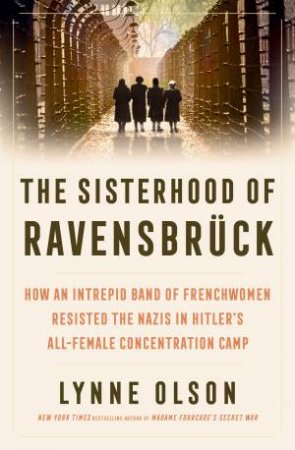The sisterhood of Ravensbruck by Lynne Olson

The sisterhood of Ravensbruck: How an intrepid band of frenchwomen resisted the Nazis in Hitler's all-female concentration camp is a work of nonfiction by Lynne Olson, a New York Times bestselling author of ten books of history, mostly focused on World War 11.
Olson has retrieved her information from a vast research undertaking. The origin of each of the many quotes (newspapers, magazines, journals, speech transcripts, interview transcripts, videos, papers, chronicles, books, etc.) that appear in the text are noted in the end pages under chapter and page number. This is followed by a comprehensive Bibliography which reveals the archival material, biographies, books, films and periodical articles that Olson consulted. Photo credits (many from the U.S. Holocaust Memorial museum and the Germaine Tillion Association) are listed. These are followed by an extensive index. Olson's The sisterhood of Ravensbruck: How an intrepid band of frenchwomen resisted the Nazis in Hitler's all-female concentration camp, is undeniably the product of thorough and distressing research.
The sisterhood of Ravensbruck: How an intrepid band of frenchwomen resisted the Nazis in Hitler's all-female concentration camp is a story of the French resistance and the previously underplayed contributions of women. Olson researches the bond between four women: Germaine Tillion, Anise Girard, Genevieve de Gaulle and Jacqueline d'Alincourt, who though from separate resistance networks, all were arrested by the Gestapo, suffered severe interrogations and beatings, were jailed and sent to Ravensbruck - the concentration camp for women. The strength in facing down death and their captors and their will to survive, save others and tell the story (bear witness) is inspiring. That the human spirit and body could survive the extent of cruelty that these women faced is beyond belief. The barbarism of the medical experiments on women in the camp is a story that had to be told amongst all the others.
In the prologue, Olson tells of the fact that these women were resisters during the war but also lived in a patriarchal pre-war society under the authoritarian Vichy government of Marshal Petain - a society "eerily akin to the society portrayed ...in Atwood's dystopian novel The hand-maid's tale". However they still were prepared to die for their country and they proved it, refusing to divulge information even under the most obscene duress. Maia Wechsler, American film-maker and a correspondent for the U.S.News and World Report, after interviewing d'Alincourt, asked the question we all ask - What would I have done, given the same situation? Would I have been as brave and resilient? The Ravensbruck sisterhood refusing ..."to surrender to savagery and terror...demonstrated the extraordinary power of solidarity in fighting for freedom and justice." Olson, p. 315.
Noting the rise of right wing populism around the world, reminiscent of the fascism of the 1930s, Olson ponders on the problem of evil and the question of how a civilised country can stoop to this infection. The sisterhood of Ravensbruck: How an intrepid band of frenchwomen resisted the Nazis in Hitler's all-female concentration camp is a story of great survival of a sisterhood against an evil regime and a warning to the next generation. These women managed to turn all of the horror of their experience into something good in the aftermath of the war.
Lynne Olson has written a compelling and important non-fiction narrative that honours and preserves the story of the indomitable, courageous and loyal women of the French Resistance.
Themes: Holocaust, Concentration camps (Ravensbruch, Friendship, Courage, French Resistance.
Wendy Jeffrey